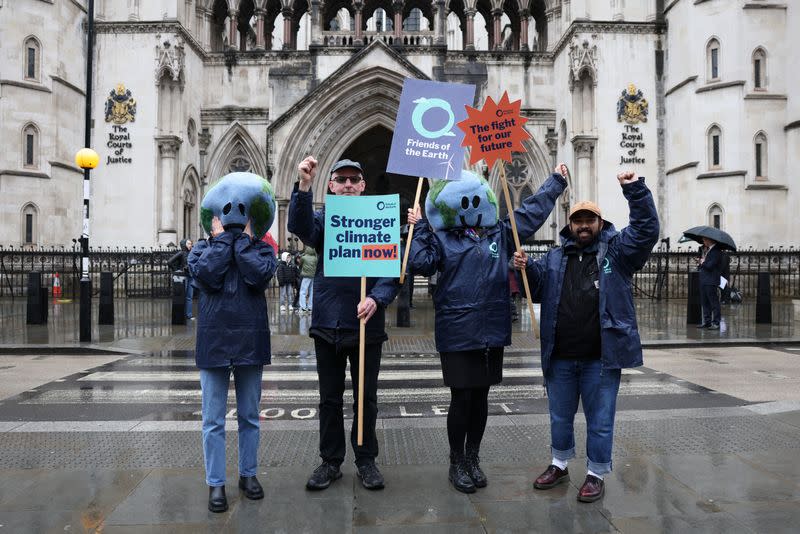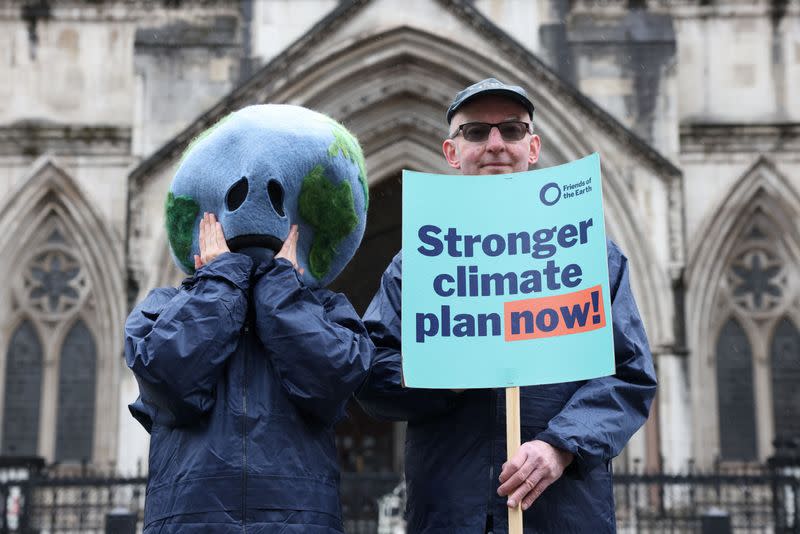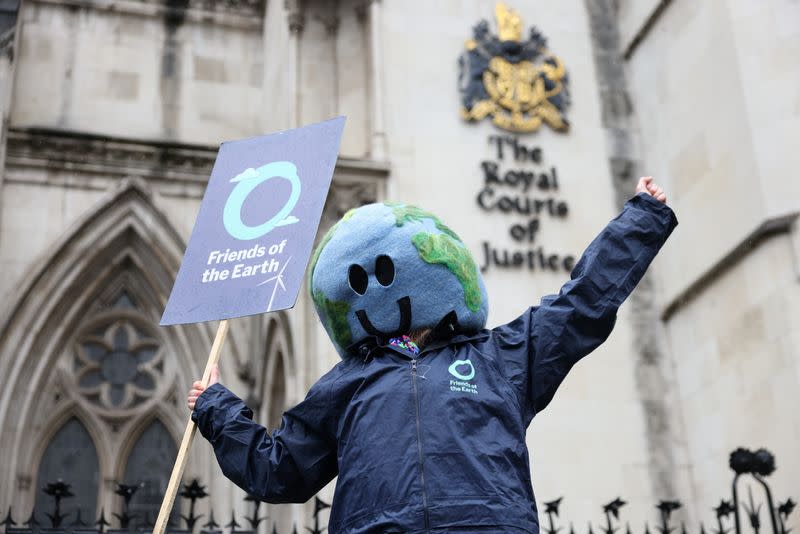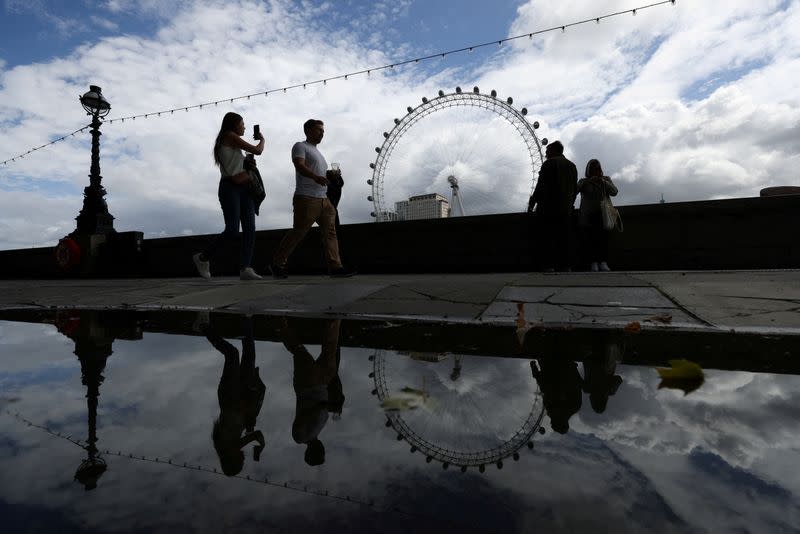UK's new climate action plan unlawful due to delivery risk, High Court rules
By Sam Tobin
LONDON (Reuters) -Britain's latest climate action plan is unlawful because ministers were not told of the risk that key policies could not be delivered, London's High Court ruled on Friday, in a further challenge for Britain as it navigates the move towards net zero.
The court's judgment – that carbon budgets set by the government in 2023 to meet the UK's target of net zero emissions by 2050 were set without evidence they could be achieved – means Britain will have to submit a new plan for a second time.
Friends of the Earth, ClientEarth and the Good Law Project took legal action over the targets last year, having successfully challenged the previous budgets set by the Conservative government in 2022.
The High Court ruled then that Britain had breached legislation designed to help reach the 2015 Paris Agreement goal of keeping temperatures within 1.5 degrees Celsius of pre-industrial levels, requiring a new plan.
The three environmental groups argued the new plan was also unlawful because it was agreed based on incorrect assumptions about its viability, citing the fact that the then-energy minister, Grant Shapps, was not told of the risk that policies to reduce emissions could not eventually be delivered.
Judge Clive Sheldon upheld four out of five grounds of their legal challenge in a written ruling that Katie de Kauwe, a lawyer with Friends of the Earth, described as "another embarrassing defeat for the government and its reckless and inadequate climate plans".
In response, a spokesperson for the Department for Energy Security and Net Zero said: "The UK can be hugely proud of its record on climate change."
The spokesperson added: "The claims in this case were largely about process and the judgment contains no criticism of the detailed plans we have in place.
"We do not believe a court case about process represents the best way of driving progress towards our shared goal of reaching net zero."
MORE CHALLENGES
Friday's ruling comes as climate campaigners have increasingly turned to the law to force governments to move more quickly on tackling emissions.
Europe's top human rights court ruled in April that the Swiss government had violated the human rights of its citizens by failing to do enough to combat climate change, in a decision that could set a precedent for future climate lawsuits.
The case in Britain was also heard amid concerns the country has lost its position as a global leader on climate action.
Friends of the Earth lawyer David Wolfe said at February's hearing that Britain's Climate Change Committee warned there were credible policies in place for less than 20% of the reductions required to meet the carbon budget for 2033-2037.
But, the group said, Shapps "proceeded on the assumption that the reductions in emissions of greenhouse gases from all of the proposals and policies ... would all be delivered in full".
The High Court ruled that Shapps was wrongly told by officials that "each of the individual proposals and policies that form the package of measures would be delivered in full", rendering the carbon budget delivery plan unlawful.
Shapps' decision was "based on reasoning which was simply not justified by the evidence", Sheldon said in his ruling.
(Reporting by Sam Tobin; editing by Mark Heinrich)




